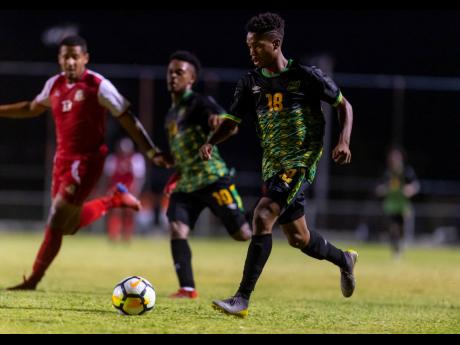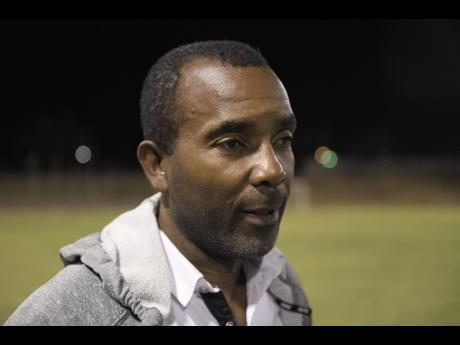‘Three rungs down’ - JFF Technical Committee chairman bemoans gulf between local coaches and regional counterparts
Chairman Rudolph Speid says that one of the Jamaica Football Federation (JFF) Technical Committee’s main priorities is to upgrade local coaching qualification standards to be on par with the best in the region.
Speaking at a virtual Gleaner Editors Forum on Thursday, Speid said that Jamaica’s highest certification, the Level Two, is three levels below the Pro licence in countries such as United States and Costa Rica.
But he said that the JFF has established a task force to fast-track improvements to coaching and administrative qualifications.
“In Costa Rica and the US, they train coaches for Pro licences,” Speid said. “Then there is an A licence, a B licence, a C licence, and a D licence.
“In Jamaica, a Level Two licensed coach is the equivalent of a C licence and the lLvel One equivalent to a D licence. So all our top coaches here,they are three rungs below.”
Analytical knowledge
Speid says that when local clubs or national teams prepared by locally certified coaches play against Central or North American opponents, the opposing coach will probably be three times superior in his technical, tactical, and analytical knowledge of the game than his Jamaican counterpart, and he says the JFF is taking steps to bridge this gap as soon as possible.
“An example that you know about is the Olympic qualifiers,” he said. “St Kitts, who qualified over us, the coach that helped prepare that team (Earl Jones) conducted the Concacaf B licence out here, so he was, basically, the teacher going up against the student, and we all know what happened.
“But until we do that, we won’t be able to impart knowledge to our players because if you don’t have the knowledge, it just won’t work. So that is one of the fundamental problems we found our coaches have.
“Some of them are very good, but they don’t have certain information, and that is something we hope to get on board in 2021.”
Speid explained that the Concacaf B licence, which replaced the Level Two as the highest qualification locally this year, is equivalent to a B licence.
But there is no one locally with the experience to teach the B licence course even though 20 local coaches now hold that qualification.
However, establishing the coaching school will allow the JFF to invite instructors who can teach both the A and B licence courses until local coaches gain the experience required to instruct them.
“We have a JFF coaching task force which is geared towards the Concacaf convention, so we will be able to teach coaches at those higher levels,” Speid said.
“The two main focuses of the coaching school is the clubs and coaches. We are going to be having courses for administrators, too. So the coaching school is very well advanced, and we will get help from Concacaf, UEFA, and FIFA to put this school in place.”
Speid said that by 2021, all clubs should be Concacaf certified and called on parish associations to encourage their clubs to make the reform.


